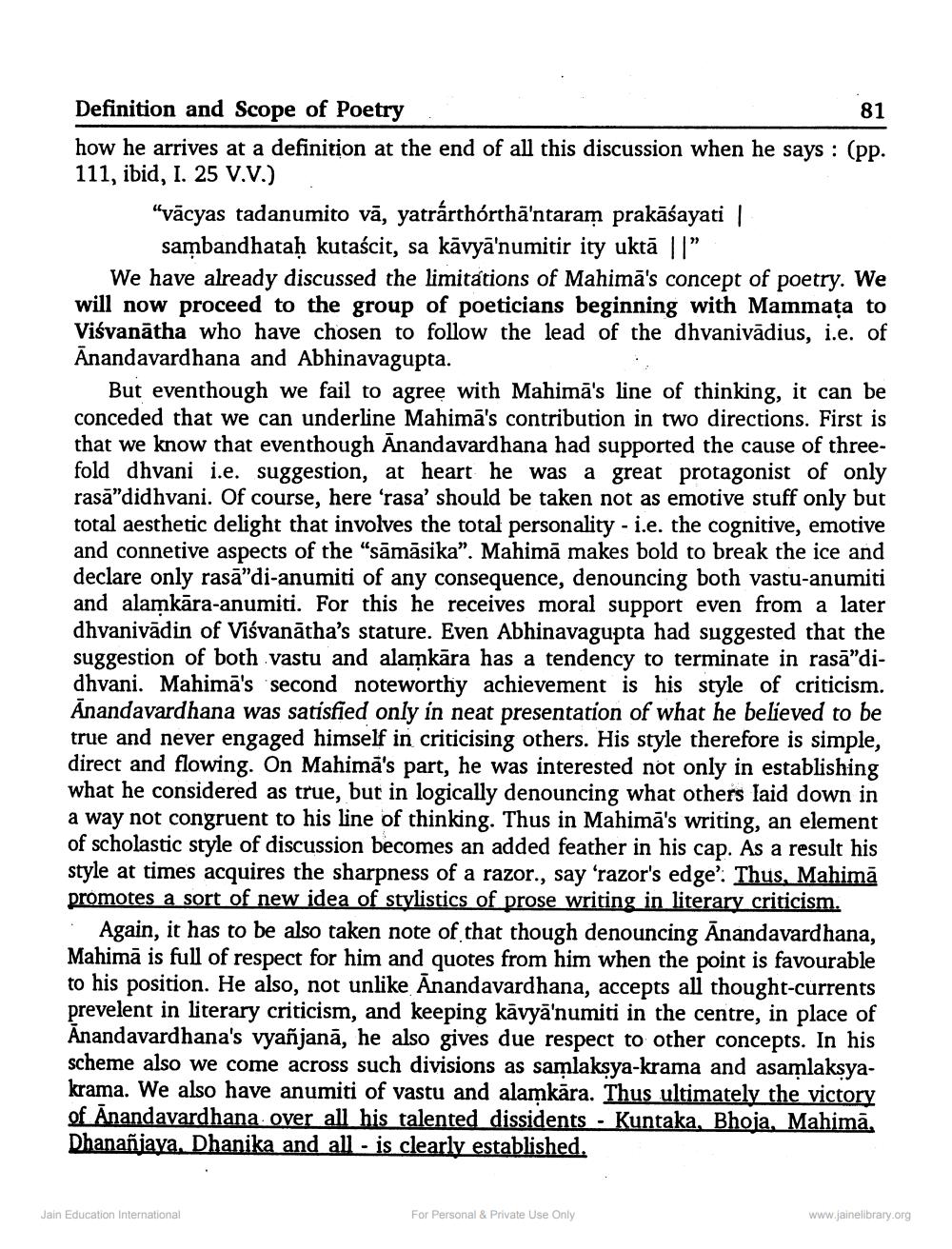________________
Definition and Scope of Poetry how he arrives at a definition at the end of all this discussion when he says : (pp. 111, ibid, I. 25 V.V.)
"vācyas tadanumito vā, yatrárthórthā'ntaram prakāśayati |
sambandhataḥ kutaścit, sa kāvyā'numitir ity uktā ||” We have already discussed the limitations of Mahimā's concept of poetry. We will now proceed to the group of poeticians beginning with Mammaţa to Visvanātha who have chosen to follow the lead of the dhvanivādius, i.e. of Anandavardhana and Abhinavagupta.
But eventhough we fail to agree with Mahimā's line of thinking, it can be conceded that we can underline Mahima's contribution in two directions. First is that we know that eventhough Anandavardhana had supported the cause of threefold dhvani i.e. suggestion, at heart he was a great protagonist of only rasā"didhvani. Of course, here 'rasa' should be taken not as emotive stuff only but total aesthetic delight that involves the total personality - i.e. the cognitive, emotive and connetive aspects of the "sāmāsika". Mahimā makes bold to break the ice and declare only rasā"di-anumiti of any consequence, denouncing both vastu-anumiti and alamkāra-anumiti. For this he receives moral support even from a later dhvanivādin of Viśvanātha's stature. Even Abhinavagupta had suggested that the suggestion of both vastu and alamkāra has a tendency to terminate in rasa"didhvani. Mahima's second noteworthy achievement is his style of criticism. Anandavardhana was satisfied only in neat presentation of what he believed to be true and never engaged himself in criticising others. His style therefore is simple, direct and flowing. On Mahimā's part, he was interested not only in establishing what he considered as true, but in logically denouncing what others laid down in a way not congruent to his line of thinking. Thus in Mahimā's writing, an element of scholastic style of discussion becomes an added feather in his cap. As a result his style at times acquires the sharpness of a razor., say “razor's edge': Thus, Mahimā promotes a sort of new idea of stylistics of prose writing in literary criticism.
Again, it has to be also taken note of that though denouncing Anandavardhana, Mahimā is full of respect for him and quotes from him when the point is favourable to his position. He also, not unlike Ānandavardhana, accepts all thought-currents prevelent in literary criticism, and keeping kävyā'numiti in the centre, in place of Anandavardhana's vyañjanā, he also gives due respect to other concepts. In his scheme also we come across such divisions as samlaksya-krama and asamlaksyakrama. We also have anumiti of vastu and alamkāra. Thus ultimately the victory of Anandavardhana over all his talented dissidents - Kuntaka, Bhoja. Mahimā. Dhananjaya. Dhanika and all - is clearly established.
Jain Education International
For Personal & Private Use Only
www.jainelibrary.org




